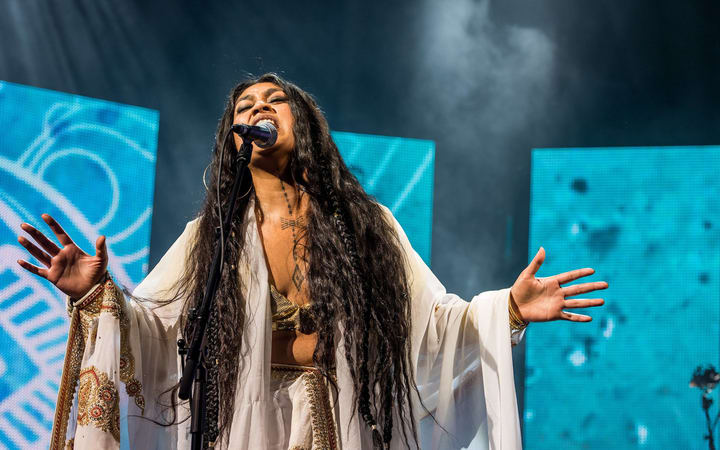The New Zealand Music Awards have undergone a change. Last year singer Aaradhna refused her best Urban/Hip Hop award saying the award was racially discriminatory. Now Damian Vaughan, the CEO of Recorded Music New Zealand, says they have created new categories for the Tuis to better reflect the diversity within the New Zealand music industry.

Aaradhna at Vodafone New Zealand Music Awards 2016. Photo: Supplied
Gone is the Urban/Hip Hop award, which has been replaced by best Hip Hop and best Soul/Rnb awards. This follows the 2016 awards where Aaradhna refused the award, saying "I feel like I've been placed in a category of brown artists”. She gave the award to fellow nominees SWIDT.
Damian Vaughan, CEO of Recorded Music New Zealand, who oversees the Tuis says there’s been industry wide consultation regarding shape and diversity of the awards.
The consultation process involved artists, management and record labels. “We always strive to evolve and adapt the awards to make sure we are accurately representing and celebrating our local artists as best we can,” Vaughan says.
The Best solo artist has also replaced best male and female artist category. Vaughan says this reflects the growing diversity of the industry in the way artists identify. The original male and female artist categories were created to ensure women were being recognised.
“There’s no gender bias in art,” he says.
The diversity of the judging panel is also important. Although the names of those who make the final decisions are kept secret Vaughan says the organisation does its best to ensure fair representation, and over 200 people from the music industry are involved in the process.
Money is also at the forefront of Damian Vaughan’s mind. Questions have been asked about whether it’s worth throwing money at the awards when there are artists who are struggling financially.
While the awards seem to be a lavish affair Vaughan says Recorded Music New Zealand is mindful of the cost as it has a direct impact on the artists. He says money given to the organization comes from royalties, so it’s important to give back to the artists. He also works with a vast array of sponsors to ensure the industry provides a platform to celebrate New Zealand artists.

